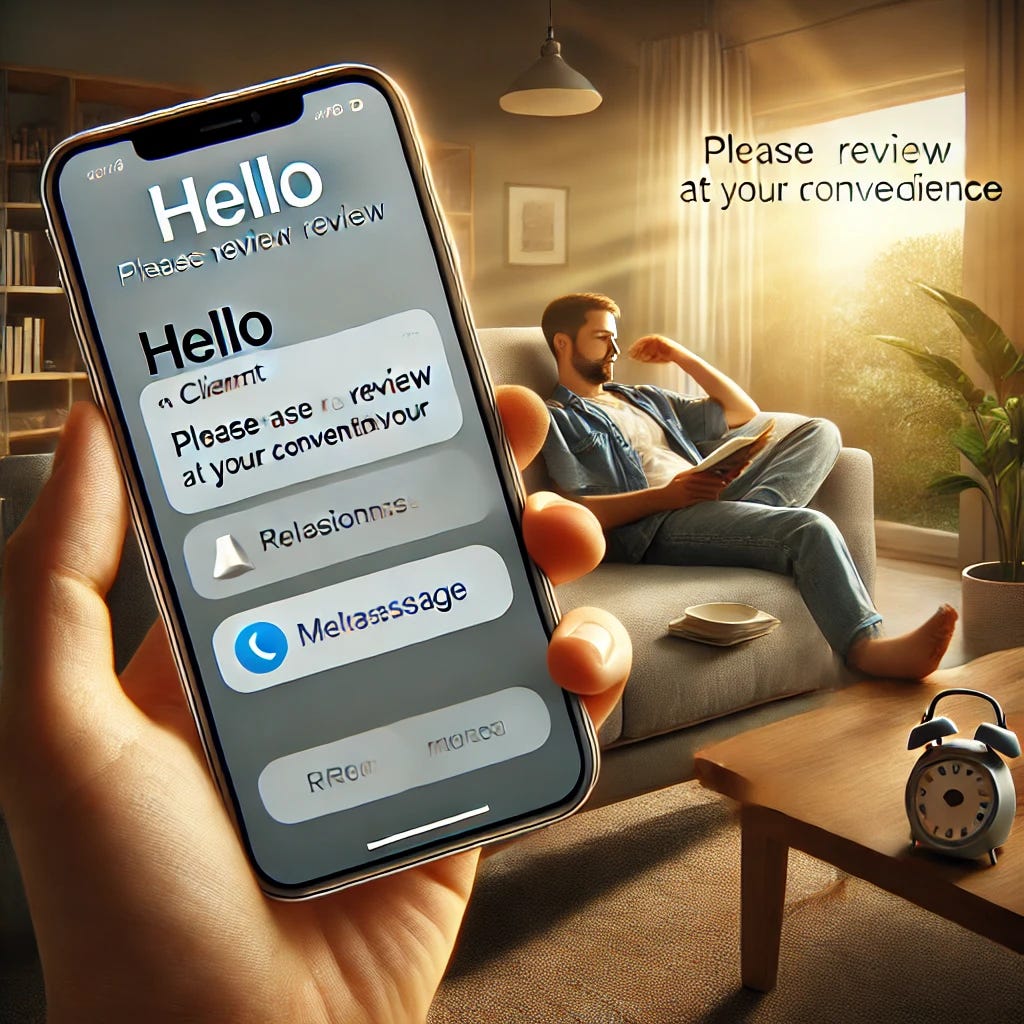Here's my number, C̶a̶l̶l̶ Message me maybe 📲
Non-voice is the future of relationship management
Let’s face it, we’re all busy. It’s not just the executives or the business owners; everyone’s trying to juggle a million things at once. With so many distractions, it's hard to focus, and then bam, you get a phone call that throws you off completely. We’ve all been there—mid-thought or mid-task, and suddenly the phone rings, pulling you away. It’s annoying, right? Especially when it’s a sales or relationship manager calling, trying to sell you something, and you just don’t have the bandwidth to engage at that moment.
This is where the shift is happening—away from voice-driven relationship management to non-voice methods like WhatsApp and other chat platforms. People aren’t just preferring this shift; they’re demanding it.
The Changing Dynamic
Let’s look at how things used to be. Traditionally, relationship management in high-value, long purchase cycle businesses like wealth management, insurance, or even banking was very call-heavy. It was personal—managers built trust over calls, hearing their client's needs and offering advice or solutions. But that was when our attention wasn’t being pulled in a thousand different directions all day.
Today? People are swamped. Focus is a luxury, and interruptions are the enemy of productivity. Calls, especially unsolicited ones, are often seen as intrusive. Have you ever received a call while knee-deep in a task and thought, “I really don’t have time for this”? That's a daily reality now.
Instead, people prefer chat messages, because they can control the conversation. They can choose when to respond—whether it’s right away, in an hour, or the next day. This flexibility is key. It allows clients to stay in control of their time, which is becoming the most valuable currency in our modern lives.
The Rise of WhatsApp and Other Chat Platforms
WhatsApp and other chat platforms have completely transformed the relationship management game. Think about it—how many times have you avoided answering a call, but were totally fine responding to a WhatsApp message from the same person? It’s less pressure, less disruptive, and, most importantly, it’s on your terms.
When a relationship manager sends a message, it doesn’t demand immediate attention like a call. The client can check it when they’re ready and respond at their convenience. This non-voice approach is respectful of their time, and honestly, it’s much more in tune with how people prefer to communicate today.
[I used ChatGPT to generate this image, but oh well, still learning!]
For example, I know of wealth management firms where relationship managers are now primarily using WhatsApp to share portfolio updates, market insights, or even just to check in. It’s a low-pressure way to stay connected and ensures that the client can engage when they’re ready.
In insurance too, where policies can take a long time to finalize, having a back-and-forth conversation over chat keeps things moving at the client’s pace, without the pushiness of a call. It's the perfect balance between staying informed and not feeling overwhelmed.
The Art of Relationship Management in the Non-voice Era
Now, this shift doesn’t mean that relationship management has become impersonal. In fact, it’s more personal than ever. Because it’s no longer about just pushing information or forcing a conversation, it’s about truly understanding what your client wants and when they need it.
The ‘when’ is the critical piece. Timing is everything in today’s fast-paced world. It’s not just about being available when your client reaches out; it’s about understanding when they want to engage. And sometimes, they don’t want to engage immediately, but they’ll appreciate that you were there for them when they were ready. WhatsApp and chat platforms make this so much easier.
Relationship managers need to be tuned in to their clients’ rhythms. Is this client someone who prefers a weekly update on their investments? Or are they more of a “just tell me when something big happens” kind of person? Knowing these nuances can make all the difference in building trust and loyalty.
Respecting Time in a ‘World Short on Time’
In an age where everyone seems to be short on time, respecting that time is one of the best ways to build strong relationships. Non-voice communication offers that respect. It shows that you’re mindful of your client’s busy life and are willing to fit into their schedule, rather than forcing them into yours.
It also gives clients the breathing room to digest information. How many times have you been on a call where the other person rattles off so much information that by the end, you barely remember half of what they said? With chat, clients can take their time to read through a message, re-read it if needed, and respond thoughtfully. This leads to more meaningful interactions and better decisions.
Non-voice is the future of relationship management, especially in industries like banking, insurance, and wealth management, where trust and long-term engagement are key. It’s not just a trend—it’s a response to the way people live and work today. Respecting your client’s time, giving them control over the conversation, and being there when they’re ready—that’s how you build real, lasting relationships in the modern world.
So next time you’re about to dial someone up, maybe think twice. Send a message instead. Trust me, they’ll appreciate it.
I’m happy you went through the whole thing, and weren’t busy to skip it. What your relationship manager and I have in common is, we both like it when you reply :)






